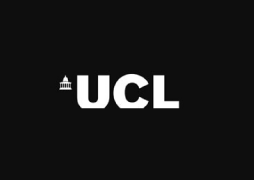Who are University College London?
Founded in 1826, UCL was the first English university established after Oxford and Cambridge, the first to admit students regardless of race, class, religion or gender, and the first to provide systematic teaching of law, architecture and medicine. We are among the world’s top universities, as reflected by performance in a range of international rankings and tables. UCL currently has over 35,000 students from 150 countries and more than 11,000 staff. Our annual income is more than £1 billion.
Part of London’s Global University, UCL Engineering provides research and teaching that turn fundamental science into solutions that change the world. Work in the faculty has contributed to rapid vaccine production, fibre-optic communications and the infrastructure of the Internet, among others. 7 of the UK’s 72 EPSRC centres for doctoral training are based here, and our annual income is around £75 million. Our 1,000 faculty members and over 4,500 students use their skills across our eleven departments, UCL, and in the wider world.
What projects / schemes / initiatives to support women’s recruitment, retention and progression in STEM are University College London involved in?
Equality has been a priority for UCL from its founding in 1826. The current Provost of UCL, Professor Michael Arthur, chairs the 50:50 committee, which brings together stakeholders and experts from around UCL to implement initiatives to ensure no barriers exist for women to progress throughout the college.
In Engineering Sciences the majority of the departments hold or are applying for Athena SWAN awards and there are departmental as well as Faculty wide networks and societies. The UCL Student Society of Women Engineers uclwe.cs.ucl.ac.uk founded two years ago has held numerous events to bring together undergraduate, masters and doctoral students together for training, professional development, mentoring and outreach. The faculty runs many outreach activities with school students and for all of these activities schools must ensure an equal gender balance (50:50) for the students taking part; this not only encourages more girls to attend than might not otherwise, but also demonstrates the importance of UCL attaches to increasing the number of women engineers.
Why did University College London join WISE?
“WISE provides a great focus for materials and expertise to encourage girls and women to pursue careers in Science and Engineering. UCL recognizes this work as vital to the future and is keen to contribute.”
– Dr Sally Day, Senior Academic, UCL Electronic and Electrical Engineering







